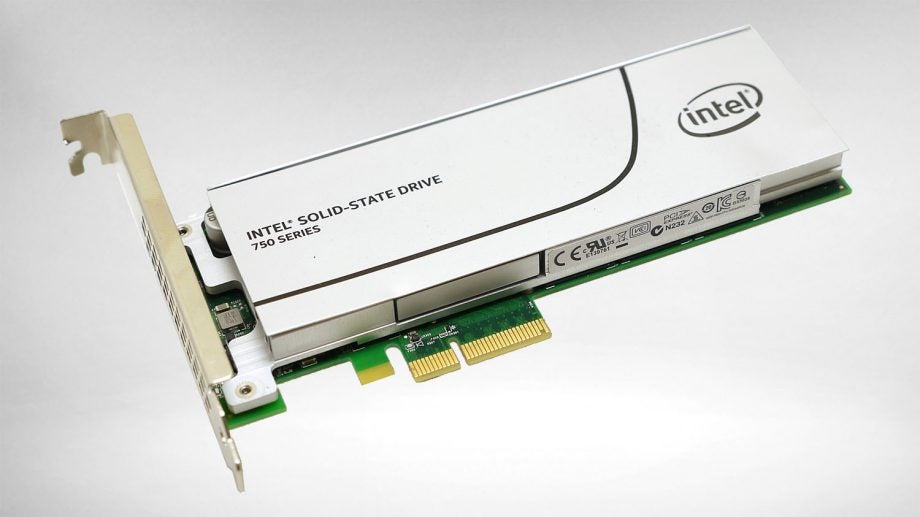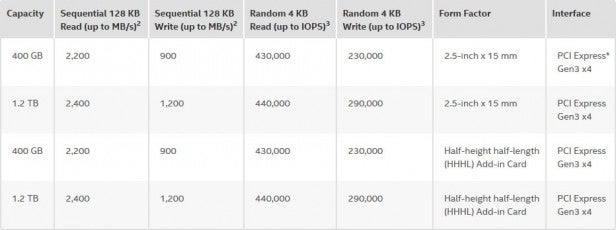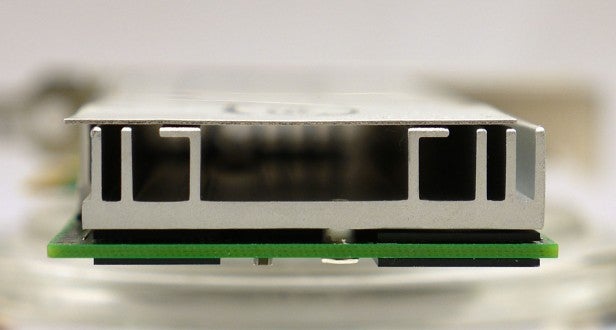Intel SSD 750 Review - Performance and Verdict Review
Performance and Verdict
Intel's new NVM Express SSDs are lightning fast

Sections
- Page 1 Intel SSD 750 Review
- Page 2 Performance and Verdict Review
Intel SSD 750 – Performance
When looking at the performance of a drive such as the Intel SSD 750, it’s worth considering the overall landscape of mass-storage performance.
First, if you’re upgrading from a hard drive, any modern SSD will be a huge improvement, speeding up boot times and making programs launch more quickly. Hard drives will max out at around 150MB/sec, which is far from even filling the throughput provided by the older SATA 2.0 standard of 300MB/sec. By contrast, most of today’s SSDs make use of the SATA 3.0 interface (also called “6Gbps SATA”), and the fastest come close to using all of its 600MB/sec throughput.
The Intel 750, then, with its up to 2,200MB/sec read and 1,200MB/sec write speed is in a totally different league. As such, it’s worth considering only if you’ve already maxed out the SATA options.

Starting with sequential read and write speeds, using AS SSD we actually recorded figures in excess of those claimed by Intel. Sequential reads hit 2,364MB/sec, while write speed registered at 1,342MB/sec. CrystalDiskMark wasn’t quite so generous with its read score, hitting only 1,635MB/sec – but again, writes exceeded expectations at 1,278MB/sec. Finally, ATTO also reported excellent performance: read speeds hit 2,495MB/sec and write speeds were 1,269MB/sec.
With real-world transfers of large files we recorded only 1,500MB/sec and 1,200MB/sec – but of course, these are still blisteringly fast numbers.

Moving onto random read/write performance, and in AS SSD it was the results in the 4K 64 queue depth test that stood out. Scores of 1,349MB/sec and 668MB/sec are way above those from the Samsung 850 Pro’s 386MB/sec and 331MB/sec respectively – an otherwise very fast SATA drive. Similarly, in CrystalDiskMark’s 32 queue depth test the Intel 750 hit 864MB/sec read and 646MB/sec write times; the Samsung managed only 36MB/sec and 369MB/sec.
We could go on, but the picture is clear: this is far and away the fastest drive around, whether that be for straightforward file transfers or intensive random workloads.
TB NVMe SSD card with packaging on white background.” title=”Intel SSD 750 PCIe” width=”300″ height=”158″ class=”align size-medium wp-image-274341″>
Should I buy the Intel SSD 750?
There’s no doubting the Intel 750 Series’ performance. No other consumer drive comes close, so if you want the best then it’s a no-brainer.
Pricing is actually pretty competitive. The 1.2TB model costs a whopping £800 or so, but the 400GB version is available for around £300. For that capacity and with so much performance on offer, this it’s decent value. A 512GB version of the Samsung 850 Pro costs around £200, but it’s half the speed.
But the question is whether you really need that speed – and for most users that answer will be an emphatic no. An SSD such as Samsung’s 850 Pro will be ample for the majority, and will be fine for the foreseeable future too.
However, if you work in a field that requires intensive computation – video editing or 3D design, for example – the Intel SSD 750 could be the perfect way to take your rig’s performance to the next level.
Although having to find compatible hardware is definitely off-putting, having the knowledge that it’s only likely to grow – this is future, not some niche solution – makes it a hurdle you’ll have to overcome at some point anyway.
This drive to expensive for your tastes? Check out your other options in our Best SSDs Roundup.
Verdict
Intel’s latest SSDs are undoubtedly the fastest consumer drives available, and pricing is reasonably competitive for the performance they provide. Most users simply won’t need the performance upgrade, but for those who want the ultimate in performance – with an eye on the future of computer storage – the Intel SSD 750 is a great option.

